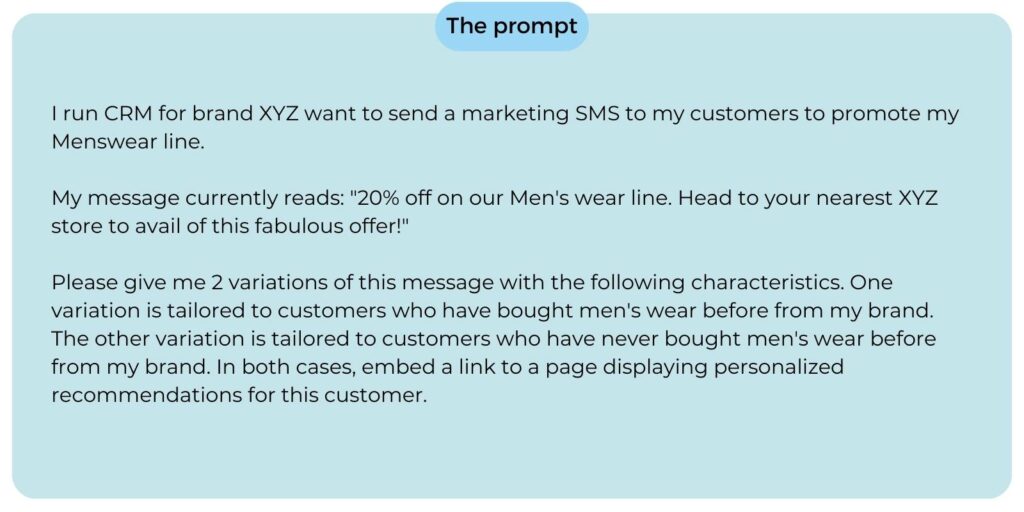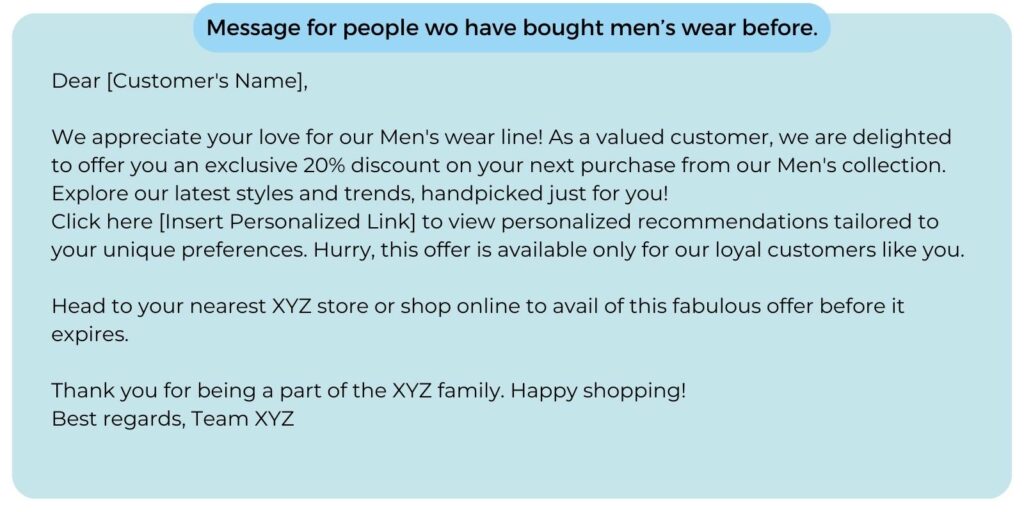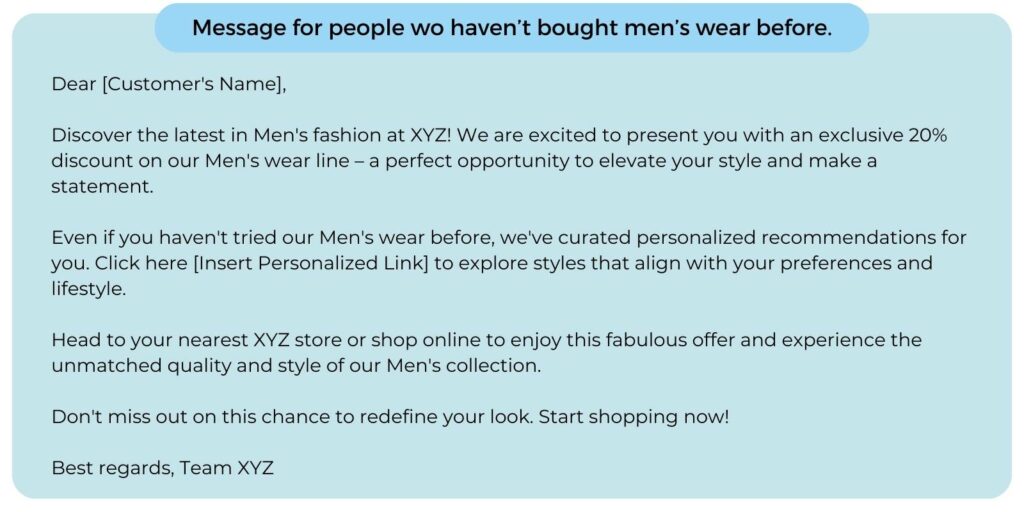The first question obviously is, can LLMs work as product recommenders themselves?
The short answer is: not really, no. Recommender systems develop an understanding of customer engagement with products (purchases, cart/wish list addition, browsing) and use it to recommend products to them. Strategies to do so include finding customer lookalikes, using co-purchase patterns, trending products, content-based filtering etc. However, all these methods are necessarily trained on data about what customers do.
LLMs, on the other hand, are trained on very large corpora of public domain text data; their purpose is to understand and generate natural language at a level comparable to humans. What this means is that, once you’ve decided what to recommend to your customers, LLMs can help you wrap the product recommendations within an appropriate selling story.
Pro tip: You must be aware of the benefits of customer lifecycle management & how you can use predictive modelling software for better targeting your customers & enhance customer lifecycle.
Customers don’t approach purchases the same way every time. For instance, if you’re looking for a restaurant to visit, sometimes you want to try something completely new, sometimes a different restaurant that serves your favourite cuisine, and sometimes you just want to go back to your favourite place once again. It’s the same with selling stories for product recommendations.
You can, of course, tell your customers: “Hey, we’ve got some recommendations especially curated for you!” or you can filter these curated recommendations through various lenses, like: “Hey, we know you love our Men’s wear collection, so here are some recommendations for you” or “Have you tried out our new line of beverages?” or “You’d like the usual once again, sir? Very good”.
Here’s where LLMs come into the picture. Since they are capable of producing very good, human-readable messages, they can write your marketing copy for you in all of these cases. You could even use something like Midjourney to work out what your creative image needs to look like, in case you want to embed these in an email.
But here’s where it gets even more interesting. Suppose you want to run a standard marketing campaign to give a 20% discount on all items in a particular category, say Men’s wear. Rather than send the same message to everyone, you could break your target audience down into two groups: people who have bought men’s wear before, and people who haven’t. You could then ask an LLM to come up with marketing copy, based on your original message, to personalize the message to these two groups. The following is an actual interaction with ChatGPT to accomplish the above task.



These simple variations in product recommendations allow you to take a generic category promotion and make them a lot more personalized and engaging for a better customer experience. The effort involved in getting these variations done simply boils down to telling ChatGPT what to do. You can even provide it with sample messages from your brand and ask it to mimic your preferred tonality.
In conclusion, the collaboration between Large Language Models (LLMs) and product recommenders brings a new dimension to the realm of personalization & machine learning in marketing. While LLMs themselves may not function as product recommenders in the traditional sense, their remarkable capability to generate human-readable content adds a layer of sophistication to the presentation of product recommendations.
By leveraging the strengths of both LLMs and product recommenders, businesses can craft smart shopping campaigns around their offerings, tailoring the messaging to different customer preferences and engagement patterns. Whether it’s suggesting new items, highlighting favoured collections, or introducing special promotions, LLMs have the potential to infuse creativity and personalization into marketing campaigns.
Moreover, the marriage of LLMs with customer data enhances the customer lifecycle journey by creating distinct marketing copies for diverse audience segments, effectively turning a generic promotion into a collection of individualized messages. Harnessing the power of LLMs for product recommendation marketing not only streamlines the process of message creation but also empowers brands to establish deeper connections with their customers by resonating with their unique interests and purchasing behaviours.


